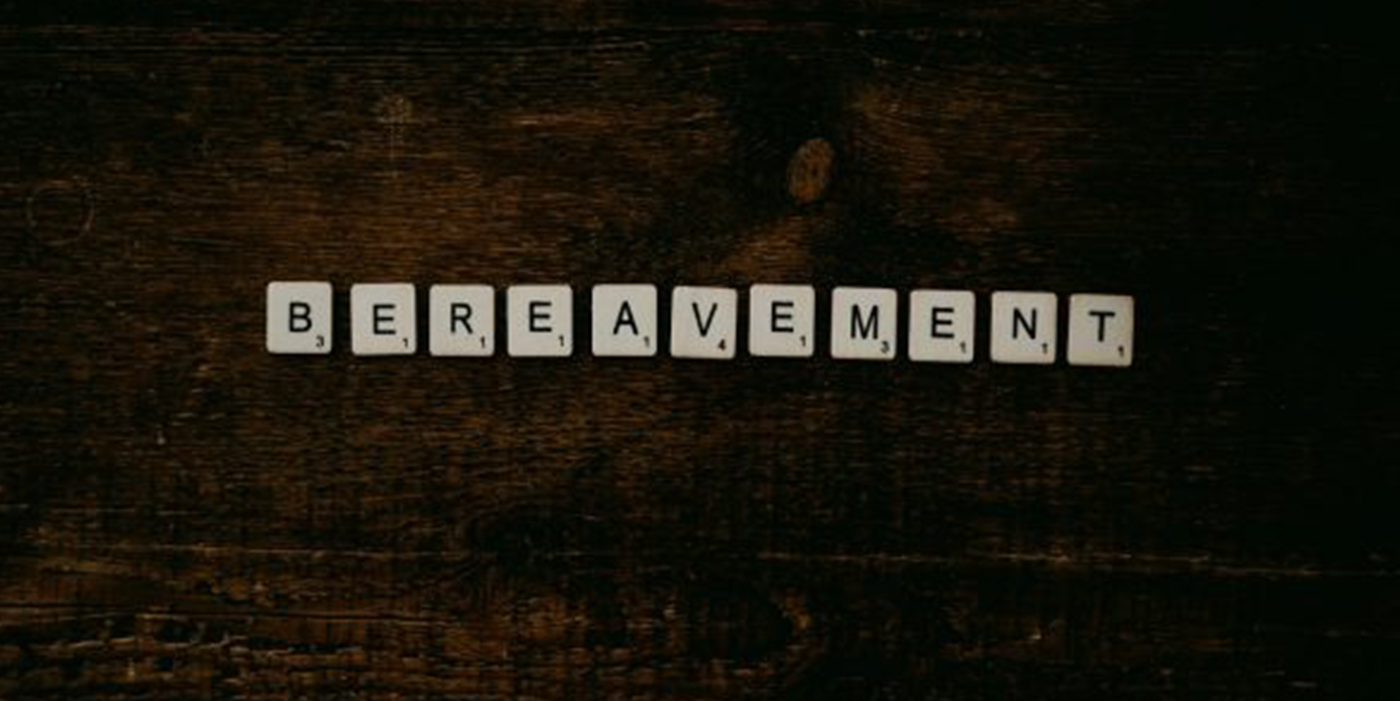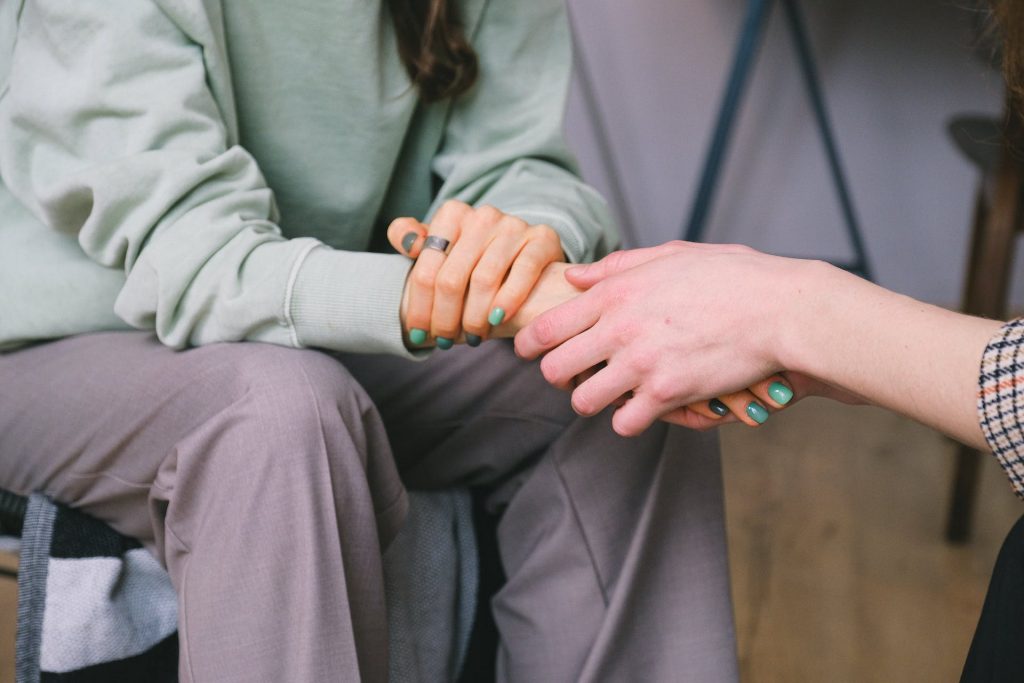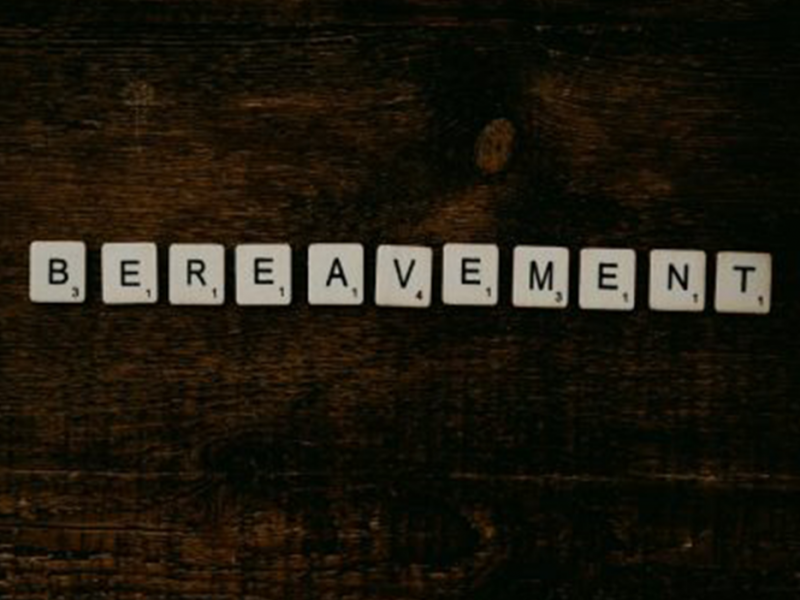
08 Feb FINDING SUPPORT DURING THE FIRST WEEK OF BEREAVEMENT
FINDING SUPPORT DURING THE FIRST WEEK OF BEREAVEMENT
At the risk of stating the obvious, when you lose a child through violent crime you are going to enter a state of shock.
This was certainly the case when my babies were murdered. I was not able to do or think anything other than what had happened. I thought about the last day I saw them. I went over and over in my head what I could have done to prevent their deaths. I wallowed in my grief and spiralled downwards as these thoughts repeated and a feeling of immense guilt weighed me down.
Being so deep in grief, I wasn’t aware of what was happening right in front of me, and it may be the case where you are unable to recognise the same.

It was my husband Iiro, my family, and friends who pulled me out of it — just by being there when i needed them and not giving up like I had done. They gently continued to nudge me back out of the hole I was sinking into.
If, however, like me you are numb with grief then you may not seize upon this opportunity, which can be dangerous for your wellbeing. As such, I can honestly say that having my family around me during those first few days was the most important support I could have asked for.
Yes, they felt like a pain in trying to get me out and about and do things when all I wanted to do was stay in bed or sit on the sofa and just stare off into space — deep in my thoughts of guilt, blame and failure —but they did the right thing, and I am eternally grateful to them for not giving up on me while I temporarily gave up on myself.
They took me hiking, I even tried tai chi (or something similar) and they made sure that they were constantly around me and talking, showing me that life had to go on. It took me a while to realise this, being on autopilot most of the time, and most conversations went right over my head, but just their presence and interaction was enough to eventually bring me round.
I’m not sure if I really talked to them about how I was feeling; my memories of those first few days are largely a blur. However, I was able to start seeing a psychtherapist soon after my loss, at which point I was encouraged to express in words what was happening inside of me.
Looking back, I know it would have been helpful if I had been more open with those around me but at the time I felt like I didn’t want to burden them with my grief when they were, of course, going through their own grief.
That was just my default mode and you may well feel and act differently. We all have our own ways of dealing with a tragedy.
While I was fortunate enough to have my husband and family, I do appreciate that not everyone is. If not, please allow your friends to be there for you and don’t be afraid to call on their support during your moment of crisis. Any true friend would rush to your side, just as you would to theirs should the situation be reversed.
If you don’t have anyone close to call upon then do call on the support services indicated by your police liaison, even if you think you’re handling things well. It does no harm at all to have someone else around, just to make sure this is actually the case.
The Healing Journey
Other than recognising the importance of a support network, it’s important to remember that we all must find and follow our own healing journey and way out of grief. The route this follows will, outside of the most general terms, be different for you to how it was for me.
In my case, I found that writing letters to my babies was a great help. I felt like I was not able to complete my role as a mother with them — it had been cut short — so writting letters helped me to express feelings and emotions to them that I hadn’t been able to do during their lifetimes.
In my case, I had the idea that everyone in the family would find something that reminded them of the twins. We then put it all together on a picture frame — something that still hangs in my office to this day.
My son Cesar had also expressed the desire to move into their room. I found that helped because their room was being used and would not stand empty. It helped me to clean it and donate all of their things to charities to benefit others.
Many people will undoubtedly find comfort in religion, and may be able to access support through their local church, mosque, synagogue, or other place of worship. Personally, I was never a particularly religious person but the loss of my babies did encourage me to become more spiritual, which helped me find solace.
Once I did pull myself out of my initial grief, I recognised the importance of self-care for my wellbeing and mental health
This was easier said than done as I could not find the energy to exercise as I had done before. But starting with walks in nature, encouraged by my loved ones, helped a great deal. Slowly that increased to yoga and other exercises while my therapist was insistent on me doing meditation. That also took me a while to accept as I knew that I would be forced to face the thoughts that would come crashing in, which I had tried to keep to a minimum day to day, but slowly I warmed to the idea.
With all of this said. it is important to realise that it takes time. I felt like my deep despair and grief had no limit, and I could not fathom the idea that there would be an end to it.
And, being truthful, there isn’t really an end. There is, however, a point where you get used to the new reality, and suddenly you find yourself able to smile and sing again without breaking down and feeling awful guilt for finding a sliver of joy.
It is normal to avoid the pain of grief. But you will only learn about your ability to handle it by going through it. I was asked often how I was able to live and carry on after something like this happened but I believe that everyone is able to do it. And once the worst has happened, there is really no other choice.
Again speaking personally, I did find it helpful to be on my own but please don’t think this is a recommendation. I’d always been happen in my own company so it felt natural but you may not naturally be that sort of person.
Even so, finding a balance was vital for me; if I had not been surrounded by my family and friends then I would not have been able to escape the hole of depression in the first place.
I also realised through this process of grieving that ultimately I was responsible for my own grief. In the end, I had to get myself out of my rut and become more active. It did not mean ignoring my feelings but instead ensuring that I did not constantly dwell on them.
It was also important to be kind to myself. I realised later on just how demanding I was on myself and the high, unrealistic expectations I had placed upon me. Grief is exhausting so caring for yourself and being patient is very important. Also remember that grief is not linear. It’s OK if you find yourself coming back to a point you thought you had left behind. Slowly, you will find healing as you come to terms with those painful feelings and personal issues.
Every one is different and every one comes to their loss experience with their own story, their own unique meaning and understanding. Whatever you are feeling at any moment is right and true for you.
So please also take the words that I have written here with a grain of salt. If you are experiencing grief then the most important thing that I want you to take away from this is to be patient and be kind to yourself. Do try and push yourself so you don’t wallow but also take the time to feel and to be present.
Love is everlasting and, therefore, so will be your grief, but — and I can’t emphasis this enough — in time you can and will learn to live with it.
KEY TAKEAWAYS
- Recognise the importance of a strong support network during the initial stages of bereavement.
- Take advantage of support services offered by the police liaison or other agencies, especially if you are numb with grief.
- Don’t hesitate to reach out to a therapist or counsellor if you feel they could be of benefit.
- Remember that each person’s healing journey is unique.
- Find what works best for you. Consider creative activities that can help you express emotions freely.
- Strike a balance between time alone for self-reflection and the company of family and friends.
- Understand the importance of self-care for mental wellbeing, even if it starts with small steps like walks in nature.
- Be patient with yourself, recognising that grief is not a linear process, and it’s okay to revisit certain emotions or stages of grief.



